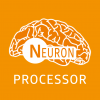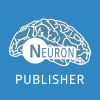Podcast (brain food): Play in new window | Download (Duration: 37:09 - 34.0MB) | Embed
Subscribe: Apple Podcasts | Android | Blubrry | RSS
I. WELCOME | TO THIS EPISODE: Sleeping & Remembering
Hello out there at the digital world receivers! We welcome you to our fourth GEHIRNfutter Podcast episode. We are Uwe Volk and Thomas Tankiewicz. And we are the co-founders of the NEURONprocessing Institute for Brain and Future Research. Our fourth episode is about the Nobel Prize for sleeping and remembering despite the gap. It sounds trivial now - but it's not - on the contrary ... it's going to be exciting ... including an introduction to morphic field theory.
With our GEHIRNfutter podcast we see ourselves as a travel companion to the limits of our consciousness and our perception - based on modern brain research.
What this journey of knowledge is all about can be seen in our GEHIRNfutter Podcast Trailer and listen to it. There you will also find our current broadcasting schedule.
II. NEWS
And of course we start again with the news of the week. Say, what were our personal highlights.
1. Uwe's highlight of the week:
The Nobel Prize in Medicine goes to the researchers of the biological clock.
"Why do we sleep and when are we awake? Three U.S. scientists are honored for their research on the internal rhythms of living things."
For more information, see:
http://www.zeit.de/wissen/2017-10/nobelpreis-fuer-medizin-geht-an-erforscher-der-biologischen-uhr
Furthermore introduction into the (morphic) field theory and possible field function for time perception.
Listen to the podcast "
2nd Thomas Highlight of the Week:
Reminder: Courage to leave a gap ...
New research challenges the idea that working memory helps us remember things through sustained brain activity. Instead, researchers at the University of Wisconsin-Madison have found that our brains "hold" less important information out of reach of the procedures normally used to measure our brain activity. The researchers were then able to use magnets (TMS: Transcranial Magnetic Stimulation) to bring this information back into active attention.
This research may in the future ev. help people suffering from schizophrenia or depression, says Dr. Brad Postle, professor of psychology at the University of Wisconsin-Madison:
"Many mental illnesses are associated with the inability to decide what to think about. What we're doing is taking the first steps toward the mechanisms that give us control over what we think about."
According to Postle, most people feel like they can focus on much more than their working memory can actually hold. It's a bit like vision, where it feels like we see everything in our field of vision, with the details disappearing unless you focus on them regularly:
"The idea that you are always aware of everything is a kind of illusion that creates our consciousness. This is also true of thinking. You get the impression that you're thinking about many things at once and holding them in your mind at the same time." But a lot of research shows us that - in any given moment - you can really only pay attention to a very small number of things at once." ...
For more information, see:
Listen to the podcast "
III TALK
Our talk on this show too is going to be our highlight of the week:
- Where does the clock tick in the brain?
- What are memories in the brain - and their gaps or even pitfalls?
Listen to the podcast "
IV. INTERVIEW
We have put interviews on hold until further notice. Thus, we give potential interview partners the opportunity to get a more comprehensive picture of our podcast. We think this is a fair and sensible way to go. More here on in the next show.
V. SUMMARY OF THE BROADCAST
What has this show brought us in terms of content on our journey of knowledge that began today? With which questions do we go into the next broadcast and who can stand by us here as a professional expert if necessary.
Resume Uwe: Listen to the podcast "
Résumé Thomas: Listen to the podcast "
VI. OUTLOOK FOR THE NEXT BROADCAST
In the next broadcast, we will look back at our first broadcasts and bring the previous content back to the point in a structured and updated way.
Gladly share
- Click to share on Twitter (Opens in new window)
- Click to share on Facebook (Opens in new window)
- Click to email a link to a friend (Opens in new window)
- Click to share on WhatsApp (Opens in new window)
- Click to share on Tumblr (Opens in new window)
- Click to share on Pocket (Opens in new window)
- Click to share on Telegram (Opens in new window)










